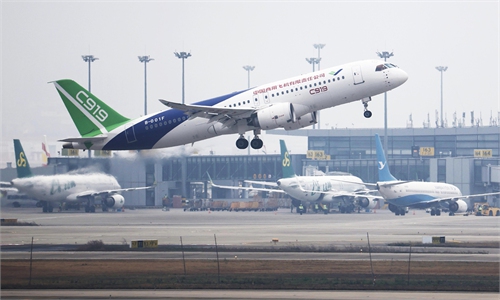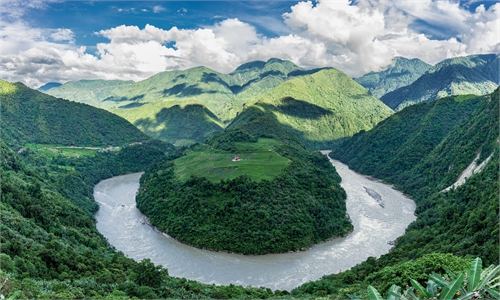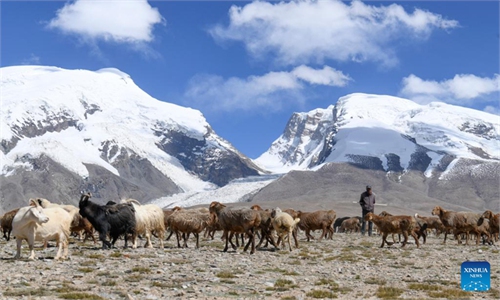IN-DEPTH / IN-DEPTH
China-proposed International PlateauPlus Association launched in Beijing to build new model for global cooperation in Earth system science
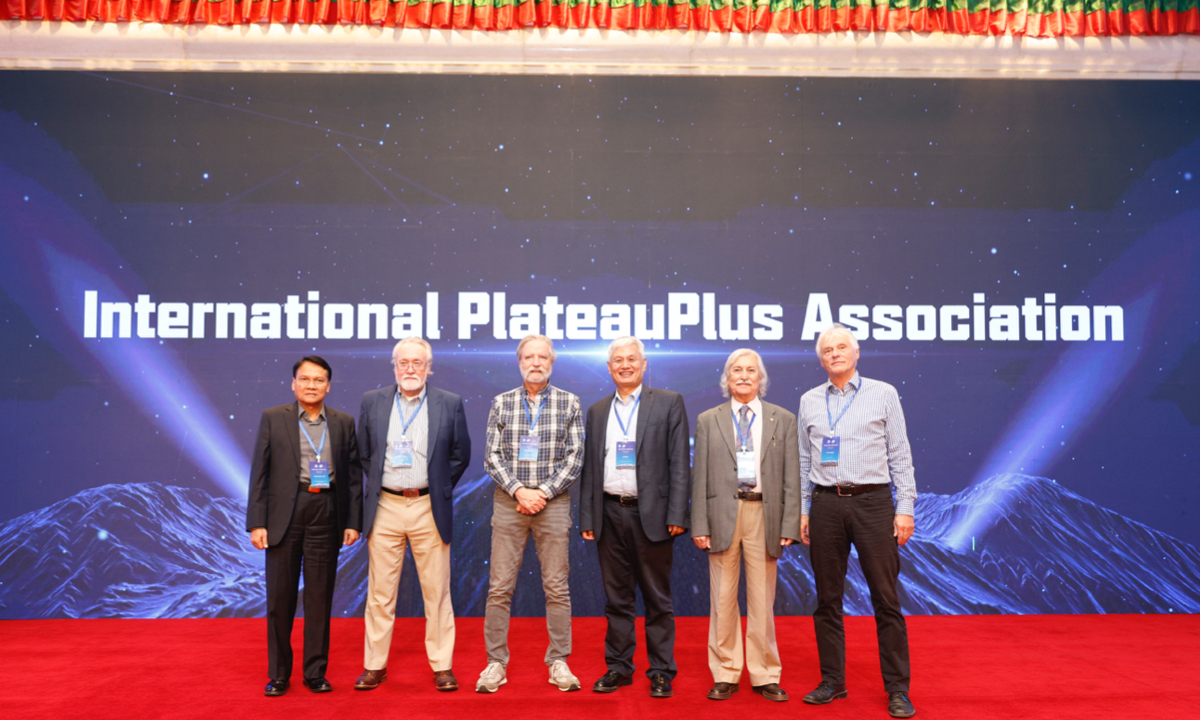
Photo: Courtesy of the Institute of Tibetan Plateau Research, Chinese Academy of Sciences
Witnessed by 150 scientists from eight countries, the International PlateauPlus Association (PlateauPlus) was established Thursday in Beijing, during the PlateauPlus Workshop held by the Institute of Tibetan Plateau Research (ITP) and the Chinese Academy of Sciences (CAS).PlateauPlus is a platform proposed by Chinese scientists that aims to unite top research institutions and scientists from more than 20 countries across the globe where giant plateaus are located. It is designated to serve as an international platform for mega plateau research and to develop a new model of interdisciplinary and cross-regional global cooperation in Earth system science, read a statement the ITPCAS sent to the Global Times.
The association will focus on the Qinghai-Tibet Plateau and Iranian Plateau in Asia, the Colorado Plateau and Columbia Plateau in North America, the Altiplano Plateau in South America, the East African Plateau in Africa and the Alps in Europe. It will conduct research on the formation and evolution of plateaus, environmental effects, biodiversity changes and human adaptation. It will also decipher the coupling mechanism between plateau uplift and surface environmental changes, and reveal the changes in plateau habitability and human social evolution, according to the ITPCAS.
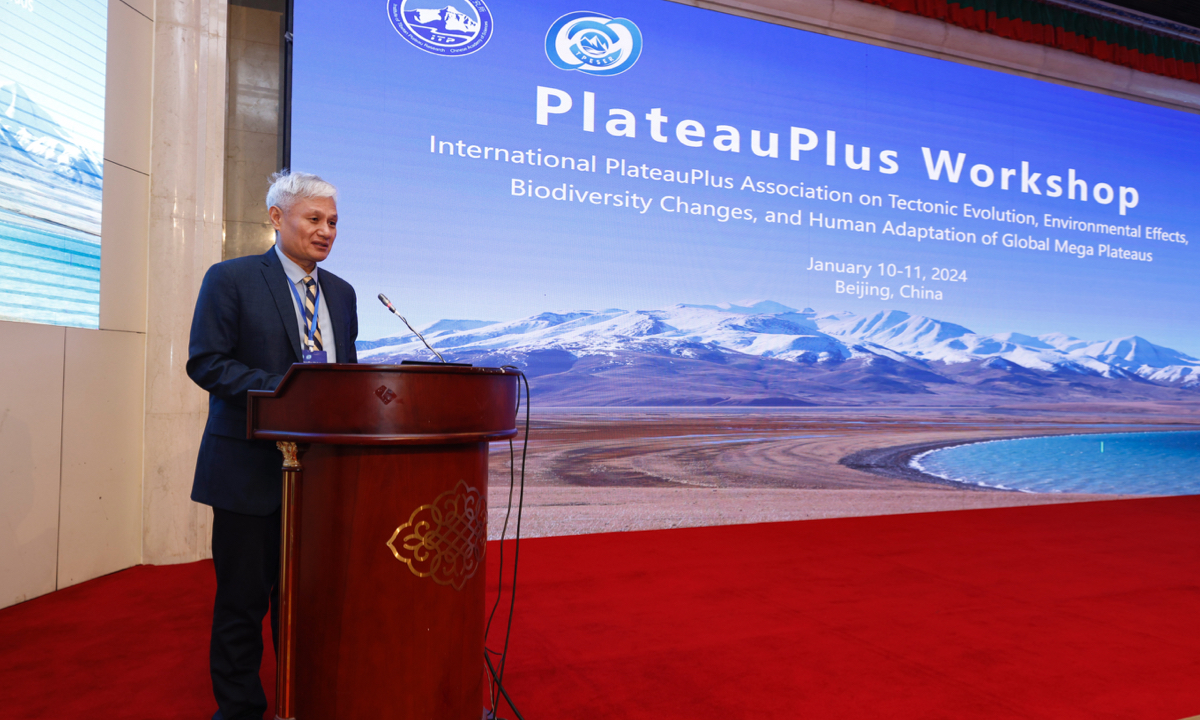
Photo: Courtesy of the Institute of Tibetan Plateau Research, Chinese Academy of Sciences
Mega plateaus have significant impacts on the environment, biodiversity, and human survival. Previously, the ITPCAS mainly focused on studying the Qinghai-Tibet Plateau, which has also attracted many foreign scientists. However, besides the Qinghai-Tibet Plateau, other mega plateaus around the world also have a tremendous impact on these aspects. So it's a good idea to unite scientists all around the world to jointly examine all these mega plateaus and find out what factors have played a vital role or how these plateaus affect each other in shaping the current environmental landscape, rivers as well as human migration and adaptation, Ding Lin, an ITP researcher and Academician of the CAS and one of the initiators of PlateauPlus, told the Global Times.
"Although aspects of the orographic development of the Tibetan region are still actively debated, collaboration across disciplines and testing ideas within the rigor of mathematical models are honing our understanding of the highly complex natural processes inherent to the Tibetan geo/ecosystem. If humans are ever going to manage our planet in a responsible and informed way, then the lessons we have learned from Tibetan Plateau research must be applied more widely to other orographically complex systems. These lessons are not just those relating to the science itself, but how we do the research, how we improve our methodologies, how we nurture international collaboration and integrate local knowledge with broader global perspectives," said Robert Spicer, emeritus professor of Earth Sciences at The Open University in the UK.
"We now have a magnificent toolbox of methodologies and ideas that can be used to investigate other plateaus worldwide, so it is time to explore and integrate plateau system research globally," Spicer said. He noted that as a world leader in science, China is very attractive for foreign scientists.
During the two-day PlateauPlus Workshop, global scientists discussed the formation and evolution of plateaus, environmental effects, biodiversity changes, and human adaptation.
Ding said that in the future the ITPCAS will host workshops in different countries, fostering a truly global perspective.
Field excursions in various global mega plateaus will be a crucial part of the journey, offering hands-on experience and deeper insights. A key focus will be engaging more and more local institutions, especially from regions like East Africa and South America, which are currently underrepresented, according to Ding.
Strengthening these connections is essential for a more comprehensive understanding and inclusive approach to the research, he noted.
